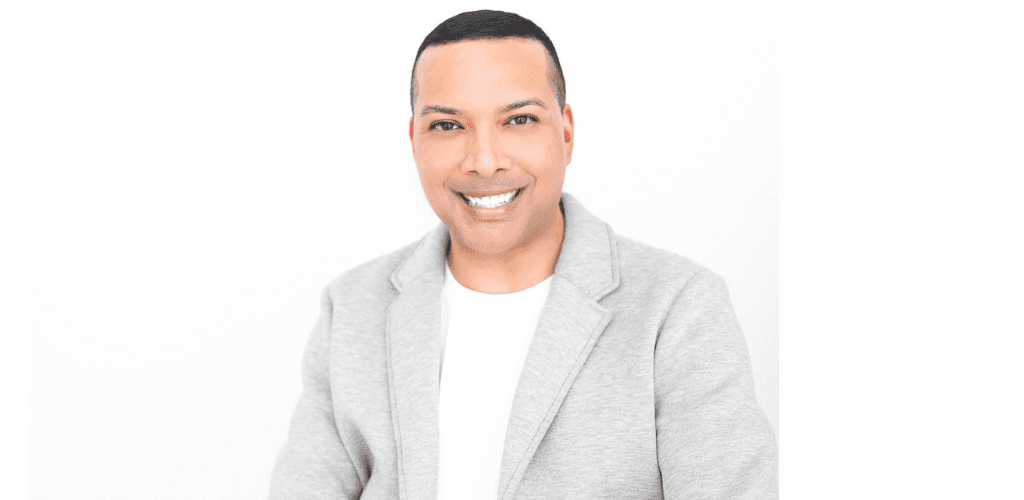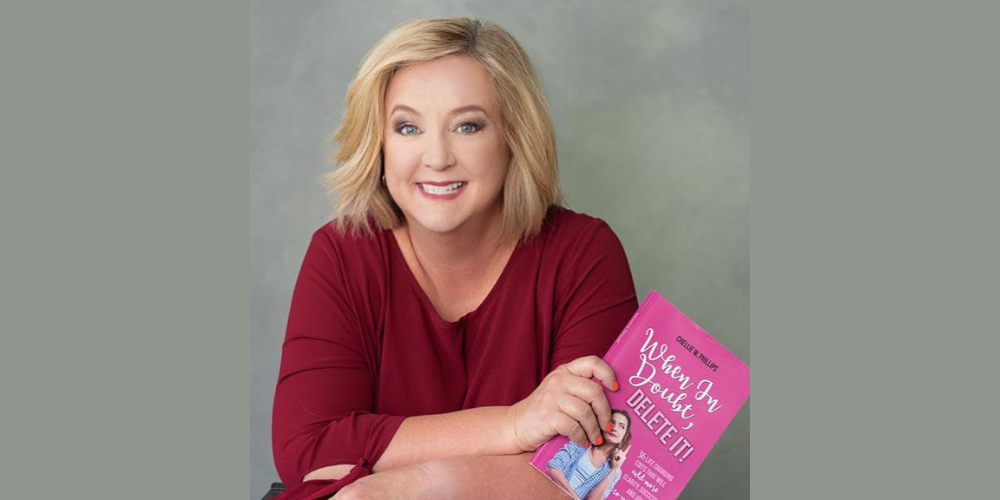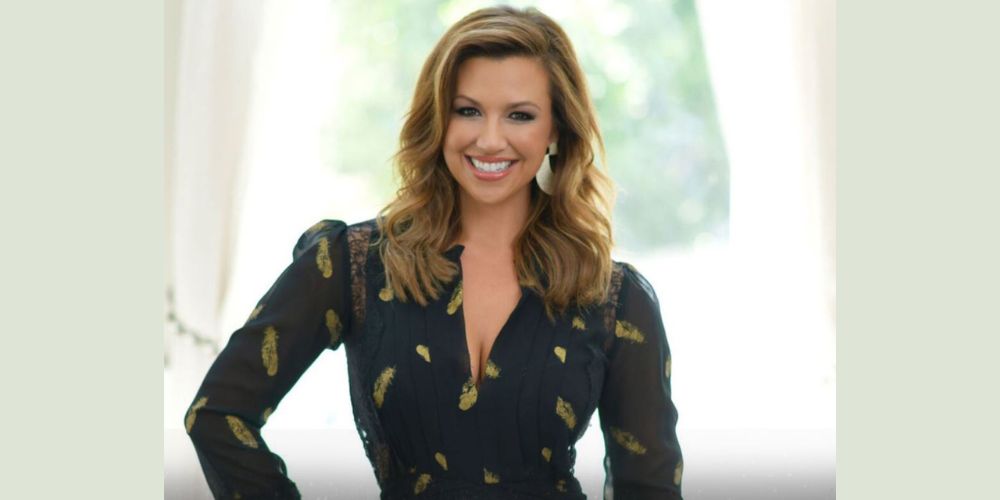Raj Girn: Here’s a bit about Randy before I bring him on. He is a public relations professional and the founder of RP Communications in Toronto. He has an exceptional eye for detail and a constant finger on the pulse of what matters. Randy has a natural talent for storytelling, generating buzz and guiding clients through the ever-changing media landscape. Consequently, his work keeps his name and his brands top of mind. And Randy is regularly featuring them on broadcast platforms, in print media and through digital publications.
With an extensive roster of award-winning clients, Randy is responsible for representing some of the most celebrated figures today, spanning a variety of industries like entertainment, health, wellness, finance and the not-for-profit sector across North America. Some of his clients include legendary singer songwriter Deborah Cox, pop sensation Mia Martina, health and wellness expert Sonia Jhas and human trafficking charity Free-Them. Born out of the drive to help individuals find their own unique voices, RP Communications is a full-service boutique PR firm that offers a breadth of services ranging from publicity, social media management, content creation, creative direction and crisis management. Here’s part one of our deep dive of what you need to know when hiring a publicist.
Here is Part One of our conversation:
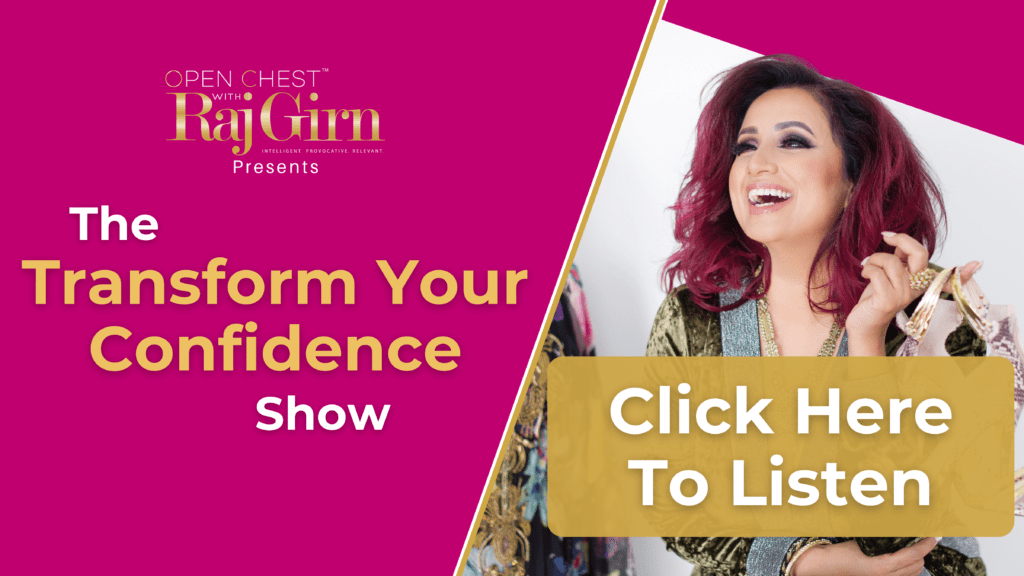
Raj Girn: Randy, welcome to the show. I’m so happy to be on the other side interviewing you because you’re used to being the person that’s getting interviews for people. Welcome to the show.
Randy Phipps: Thank you so much for having me. Thank you for that lovely introduction. I’m really humbled to be here. And it’s different being on the opposite side because I usually walk people through this and now the pressure is on me.
It’s wonderful. So let’s not apply any pressure at all, Randy, let’s just get right into it. Are you comfortable with that?
I’m great.
Brilliant. So let’s do it. So, what I want to be able to establish here, folks, because I’ve had a lot of you reaching out to me since I started this podcast at the beginning of January. And you’ve been asking me a lot of questions around the PR space. And PR is one of those spaces where, similar to marketing, there are so many wheelhouses and theories and different ways that you can actually work the strategy. And I find the best way to really help people learn a little bit more is the deep dive with someone that has their own methodology of doing what they do within the space. So I’m going to just start off by asking you, Randy, a very simple question: What actually is public relations?
I find that a lot of people are confused. Even my parents. My parents think it’s like event planning. A lot of people don’t get it. They hear public relations, they see things on television, like Sex And The City, and they think that PR is a certain thing. But really, the bottom line, end of the day, it is storytelling. It’s messaging. It’s brand awareness. It’s getting your product, your service, or your personality out to the public. That’s a really simple and digestible way to understand what PR is.
“PR is storytelling. It’s messaging. It’s brand awareness. It’s getting your product, your service, or your personality out to the public. That’s a really simple and digestible way to understand what PR is.” ~Randy Phipps
Absolutely. And there are so many ways to do that as well, and so many ways that people do it right as well as doing it wrong, right?
Absolutely.
Yeah. So let’s talk a little bit about that. Could you explain to us what, generally, all the different types of PR and when should each of those types be used? I mean, obviously, there are many different types. But if you can maybe hit on the more common ones.
Sure. I think the number one I would say and I specialize in is media relations. So that’s kind of getting yourself out there through the media channels. If you have a product or service, a launch, an event, you would go to a publicist to get the word out there, through traditional methods of PR which is like broadcast radio and television. And then also other methods such as online, which we’re seeing a big transition into. And there is also crisis communications where people will only hire a publicist if something happens and they want to do a lot of damage control. So a lot of people will look up a publicist and be, like, “Help me out, this thing happened. There was a comment on social media. I don’t know what to do. We just got a really bad review or there’s been like a bunch of bad reviews. Someone went online and said something about us.” So they want to find a way to do damage control and then keep the messaging of their brand very consistent without the outside chatter. So crisis communications is another big one. And then there’s public affairs, lots more government-related and also internal communications, where a lot of different companies and organizations will hire a publicist in how to manage their employees and the messages that get put out to their teams.
Wow. So there’s a lot to think about when you go into the whole acquisition of a publicist, just kind of making sure that you get the right publicist for the right intention, right, Randy?
Absolutely.
So, Randy, at what stage of a business should PR be considered an option for a brand? Like when is it the right time?
I think PR should always be considered. It should always be a part of the plan. But definitely executing it at the right time is critical. A lot of times you get people wanting to do things before anything’s happening. And I always say when you start working with the publicist, make sure it’s something that you want to really get out there, like a launch of something, or something noteworthy that’s happening within your industry that you want to put yourself to the forefront of. A lot of times people say “So I just kind of did this or we have a new flavour of ice cream at the ice cream shop, can we do a press release for it?” And I’m like, “You know, unless it’s National Ice Cream Day, nobody really cares about the new flavour of ice cream.” And it’s a waste of an investment to just go down that route. So I would say hold off until there’s something bigger and there’s something that you really want to push. But you also have to have a story that’s worthy of the media picking it up with a lot of interest versus a trickle. You want to go out in the stream, not a trickle, right?
“A lot of times you get people wanting to do things before anything’s happening. And I always say when you start working with a publicist, make sure it’s something that you want to really get out there like a launch of something, or something noteworthy that’s happening within your industry that you want to put yourself to the forefront of.” ~Randy Phipps
I love that you want to pick up on that a little bit, Randy. So, do you have people that come to you and you think to yourself, well, this really isn’t a story that they’re going to get the best bang for their buck? And then you say this probably isn’t where you want to go. Do you actually do that or do you take them on anyway and see if people will buy? What’s the strategy behind what you do?
I have to be able to find a way to connect it to the masses. So oftentimes it puts you in an awkward position because you want to see everyone succeed. You want to see people do well, you want to support everybody. And you feel like the dream maker or the dream crusher because people come with all this gusto. And like, “I did this and this is amazing. And we have this amazing pen that’s going to revolutionize things.” And I have to be like, “Now’s not the time to talk about the pen or you’re not ready for that stage of it yet.” So you always have to kind of bring people down because everyone comes with their enthusiasm and their gusto, as they should be. It’s their business. It’s their product. It’s their service. Everybody should have that level of excitement for everything. But I have to tell them to just calm down a little bit and now might not be the right time to do it. You need to wait until there’s something happening for us to actually get some traction around it.
“PR could benefit everybody, but it’s not for everybody unless you’re at a certain point in your career or at a certain point in your business and you have something that you can take to market.” ~Randy Phipps
You know, it’s really interesting you say that because that is a really important thing that a lot of people don’t seem to realize. They feel that there’s a magic wand that a publicist can just go, yes, come to me and I can make sure that you’re sold to the mass public out there. But at the end of the day, this is what people think, right? That if I can’t do it, that’s their job. That’s what they’re supposed to do. It’s almost like they’re the doctor that’s going to be able to fix this problem that I couldn’t.
I love that analogy.
Absolutely. So, you know, folks, I want you to pay heed to that. It’s always good to understand that, what you’re putting out there from a PR perspective, number one, there’s a dollar investment. There is also number two, which is a time investment. And then the third thing is you have to be very detached from your product and look at it from the other side. This is kind of what I’m hearing you say, Randy.
Absolutely.
Look at it from the other side. What is it about what you’re putting out there that someone that’s not emotionally attached to it is going to feel an alignment of some sort? But what is going on in the world that what you’re offering is going to be something that people are going to want to pick up and enroll with? So I think that’s a really important thing to think about. So that really brings me to another question, Randy. What is that like? What is the criteria that you would look for as a publicist when someone comes to you. What kind of one or two, maybe three or four things that you would need to ensure are in place for you to know this person’s ready to go to market?
That varies from person to person and depends on what level they’re at. Because you have artists, like, I work with legendary Deborah Cox. She’s obviously a huge name, but in the business for 25 years, obviously, her name alone will sell almost anything. So her PR strategy and what we do for her would be different. But for an expert or for event PR or for someone’s product or service, I find with a lot of entertainment figures that their PR is around a project. So let’s say Deborah Cox, her album’s coming out, we’ll do like a press campaign around that. She has a movie coming out, we’ll do a press campaign around that. But then if you’re working with an expert, it’s kind of like positioning them, because most of the time, there’s a lot of paid media spots now.
The media landscape has changed a lot over the years where you can actually buy a segment in some cases. So first of all, you’re competing with the lot. And then also if you have a specific product or service, they want to charge you for the segment. So, I work with a roster of experts in health, wellness, eating disorders, education. The way I positioned them to get awareness for their businesses and their brands is by positioning them as experts that can comment on things within their industry. And as a by-product of that, their business will benefit from them being the face of the organization. Their Google searches go up and people will in the end look into them some more or hire them for things because they’re out there. So people don’t think or they want to be like, “Well, how come I can’t say the name of my business on air?” We don’t even need to do that. You’re the personality behind the business. When people are searching, they’ll find your business because you went and gave news you can use on a morning show.
I love that: news you can use. That’s a magical term right there. So think about that, guys. Anyone out there who hasn’t yet gone down the road of hiring a publicist or looking at strategy and how it can kind of benefit you getting awareness for your business, think about that for a second. What can you offer of value to an audience that will then just inherently bring them to your business? So these are things to think about. Thanks for that, Randy.
“Anyone out there who hasn’t yet gone down the road of hiring a publicist or looking at strategy and how it can kind of benefit you getting awareness for your business, think about that for a second. What can you offer of value to an audience that will then just inherently bring them to your business?” ~Raj Girn
Really summed it up perfectly.
I’m so happy to hear that I’m getting it right. So let me ask you this then, Randy. So someone feels that they’re checking all the marks. They’ve got something of value to put out there in the market that they feel is really necessary. And there’s going to be a lot of people that are going to be interested in it. What should they do when they’re considering hiring a publicist?
Well, readiness. Make sure that you’re ready and you have something to actually promote, whether it’s a product, a service, or to position yourself as an expert. That would be the top thing to look for. And then when you are looking for a publicist, you need to really energetically connect with them. I have all of my clients, they are extended members of my family now. You spend so much time with them at your home for photoshoots, you’re spending long hours with them, you’re spending after hours with them, early mornings with them. So they really become like a big part of your family. So you want to make sure that you have that connection and you have that vibe, and the energy is flowing and you have to make sure that the publicist is your number one fan. I am the number one fan of all of my clients because I don’t think that you can promote someone or position them a certain way unless you’re passionate about them.
So I really take that approach, a heart-centered approach where I need to connect with the people that I work with. I can guarantee you if you were to ask me about it, any of my clients, whether it’s a producer or a journalist or anyone on the street, I could talk to you about each and every one of them, and you will buy into it because I’m so bought into it because I’m their biggest fan.

Credit: IG @randy_inc_
Oh, my gosh. That just leads so beautifully into my next question Randy. Those who are uninitiated, don’t really know the difference between what would be a good publicist versus a bad one. What are some of the things that you should be looking at if you’re hiring a publicist for the first time?
That’s a really good question. And I think that there are two things that come to mind is PR red flags when you’re sourcing or interviewing or speaking to someone that you’re considering working with. Obviously, number one, a referral is the best thing because you know that the person has worked with someone or you can actually see some of their work and what they’ve done for certain people.
But there are two main red flags and that would be overpromising, which is number one, and name-dropping. So overpromising is when a publicist will be like, “Oh, my gosh, I love your pen. And that pen is going to be on CityLine by next week. Oh, my gosh, the pen is amazing.” If they buy into it a little too much about your damn pen, that they think it is going to be on CityLine, ding, ding, ding! Red flag! Or if they name-drop too much. It’s okay to share your work, who you work with. But people and publicists and my clients have worked with different ones. Some of them have worked with other people before coming to me. So I’ve heard a lot of horror stories where they were like, “I did this, I did that. I had a client who had 2.5 seconds in a Super Bowl commercial. And I know the producer of The Social and we’re going to do this.”
If they just start listing all of that, they shouldn’t spend so much time talking about what they’ve done, they should spend more time talking about your brand, your product, your service, and what they want to do with you. And that should resonate versus what they’re doing with someone else. Because I can’t compare someone to Deborah Cox, Sonia Jhas, Mia Martina, that’s going to work and then think that they’re going to get the same results as them. So you have to manage the expectations. And if anyone overpromises something or tells you that they’re going to get someone that’s a high caliber on your roster to walk in at that, that’s a big red flag too.
Wow. So you heard it right here, folks, I am speaking to Randy Phipps. He is a master publicist and he’s very heart-centered in his theories and his strategies and ideologies.
And that’s the reason why he gets to work with some really incredible personalities, because at the end of the day, as he just said, the name-dropping thing doesn’t work when you’re dealing with a lot of high level personalities because they’re already living and working in that realm. They’re looking for someone that absolutely puts them first. The center of the universe when they are together in this professional relationship has to be about what they are looking to accomplish and what are all the different ways that this can be done.
And I know how Randy is because I’ve worked with him on a number of projects in the past. And, I will attest to the fact that Randy, you really do go that extra mile with your clients. You really do.
Even to the point that sometimes the personality of the person that you’re working with may have an idea of what they’re looking to accomplish. But you know that there’s a better way to do it and your way of communicating. And this comes back around to a theme that I’m constantly talking about is effective communications. Your way of communicating your message to ensure that it is about the better good that you’re trying to put out there with your client. And it’s not about the ego push and pulls, right? You have a very special way of doing that. And I wanted to share that with people, especially those who are just tuning in and who haven’t heard some of what you’ve been sharing.
And what I want to do, actually Randy, if you don’t mind, is maybe share some of your stories on some of your clients just because you have such a diverse pool of people that you work with. You mentioned experts. You’ve also mentioned high profile personalities, but you also work in the non-profit sector, too. Let’s talk a little bit about some of your work here.
I work with two organizations, and that’s how I kind of got my start in the PR world. Free-Them, they are a not-for-profit that fights human trafficking in Canada. And that’s definitely a huge part of my journey because I was doing the communications and social media for Free-Them. And then we eventually got so big, we went national. We had to start working with a PR firm. So I started learning a lot of the backend stuff from there. But it was just a matter of getting this messaging out, because 10 years ago when we first started, people didn’t know that human trafficking was happening right in our own backyards right here in Canada. They thought this was something that was happening overseas. So it was really great to be a part of the movement, I feel, to help lead the charge. And communications and PR was a big part of that because our founder, she was super savvy with marketing and she knew that’s what we needed to do. So she always pushed us to excel and go past what we knew. So a lot of things in my journey, I learned from that.
And then I also work with another not-for-profit MJKO – Mentoring Junior Kids Organization. And we help at-risk youth learn life skills through the support of non-contact boxing. That’s community based and it’s super rewarding because MJKO works in priority areas of the city. And they welcome everyone. Kids and youth of all different ages and backgrounds come to the gym to work out, to learn physical fitness, health care, volunteerism. And the kids don’t realize; they think they’re coming there to box non-contact, but they’re actually learning about themselves. They’re learning about community building. They’re learning about team building. They’re learning about giving back. And they come for the sport, but they actually walk out learning so much more. So that’s been really rewarding on a community level to be a part of the organization for about 10 years as well. And that’s where my journey began.
And after not-for-profit, I worked at an agency for a while, and then I went off and did my own thing and decided I wanted to specialize and work primarily with personalities and experts, which I find super rewarding because I do have a couple of corporate clients. But it’s different. It’s quite different from working with personalities. It’s rewarding and it’s demanding. You’re dealing with people all of the time, with different personalities. But I find that personal connection, because I’m so bought into their mission and their message, that I want to just help amplify it as best as I can.
I love that. Based off of what you just said there, Randy, PR has changed quite a bit since the days of print and broadcast-only mediums, right? There are so many ways that people can be utilized today versus yesterday, partly due to the increase in the types of media platforms that exist today, and I guess partly due also to the need for there to be more innovation due to the increase in accessibility also, right?
I mean, technology has changed the game from that perspective. There’s so many multilayered, different forms of media out there that you can kind of utilize as part of your strategy. So I wanted to ask you this when considering what type of PR firm to go for, what are the deciding factors between perhaps opting into a full service or opting into a boutique firm? And I guess maybe what we’ll do is we’ll start by first saying what the differentiating factors are between those two.
Sure. So a large PR agency, those are the big ones. A lot of them are very well known. They’re massive. They have tons of employees. They have account managers, account coordinators. There are multilayers in their organizations. And I would say those ones primarily do things on a very large scale. But you also have to have a very large budget. The number one difference between a large PR agency and a boutique agency, first and foremost is budget, because the budgets for larger agencies are huge. That’s why corporate tend to use them a lot. There are lots of benefits. They have a lot of access to different things.
But then there’s also negatives as well. And I have some clients that used to be with a larger agency that decided to go boutique because when you’re working with the boutique agency, you get really personalized, curated service versus being like a small fish in a big pond. And then you have a junior account coordinator that’s managing your account. Whereas at a boutique agency, the founders are working on your account, the person that’s at the top of the food chain at the company. So definitely it’s a personalized service.
There are also a lot of rules and regulations, you can’t contact them after five o’clock. That’s out of the question.
“I have clients that message me at 11:00 p.m. at night and it’s totally fine. I have clients that will message at 5:00 in the morning, two hours before a morning show segment because they’re nervous or they want advice on what to wear. And you have a lot more accessibility when you’re working with a smaller agency because it’s a lot more personal.” ~Randy Phipps
Wow. People actually call you up at 5 AM to ask you about the outfit?
All the time. Yeah, but that’s fine that I don’t want them going on TV looking a mess, so I encourage that. Yes. I mean, text me a picture, send it to me the night before. I’ll get a second opinion. We’ll get you dressed in something if there’s an issue. But yeah.
So I want to ask you something then Randy. So what are some of the services that your agency offers? Because it sounds like it’s quite innovative in terms of how you kind of operate things, and it is based a lot on personality specific requirements. I don’t know if I’m putting words in your mouth. So can you correct me if I’m wrong?
Totally. Specifically, we do publicity services, but we also do social media content creation. I’m a super social media fan. I know a lot of people hate social media, but I actually love it. So a lot of the clients that I work with, we help curate content for their social media, whether it’s a strategy, doing content shoots, managing it for them. I’m so passionate about it because I always tell people when networks and producers want one of you for their show, they often go to your social media page. They don’t always go to your website. They’ll go to your Instagram page to see what you look like, to see how you present, to see how you speak. So the PR and the social media support one another. So they work in tandem.
And then also, once you do get that segment you want to post, you want to share that you’re on these shows and you’re doing lots of different things. I had a client that got their account verified because the media hits are actually on their Instagram page. So there are a lot of benefits to that. So I’m super passionate about that. And then also the creative direction for photo shoots we love to do, and also for social media content where you map out and figure out what is going to get curated to put on the social media and whether that’s photography or videography. We work together in tandem with the client to make sure that the right messaging is on the page because that is your first access to the outside world.
And I often say a lot of times to Sonia Jhas, my top health and wellness expert, her following online is bigger than some of the media outlets. So her social media is very sensitive and needs to be used in a very appropriate way because sometimes there could be more eyeballs on her platforms versus the television show.
And so let me ask you a little bit about the whole social media game, Randy, since you’ve touched upon that and of course, you’re an advocate for it. What predominantly is the advantage of a brand that’s starting out perhaps or maybe just a brand that is extremely well established in the industry but doesn’t really know publicly speaking, what is it about social media that they can adopt that can help them get maybe the right types of eyeballs?
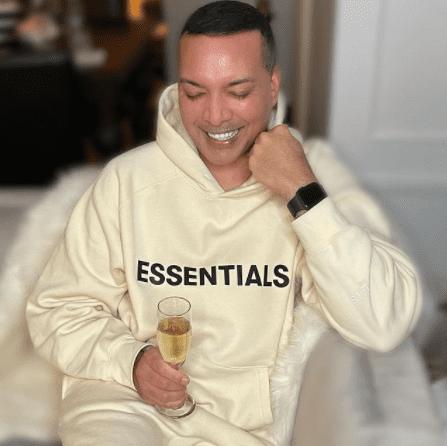
Sure. People connect with people. So oftentimes people shy away from putting themselves out there, or they want to do a lot of different things where it’s not front and center facing. But that’s a really big mistake because people connect with the person behind the brand. They want to see what you’re doing. They want to see what you’re up to. They want to see what you’re eating, what you’re wearing. And they also want the knowledge that you have to offer. So people buy into you from different vantage points. So if you’re out there in your online world and you’re active, you could develop a following, and people can connect you to different things. It’s almost like connecting the dots. You could be scrolling and you see something, oh, my gosh, there’s a chiropractor, Dr. Sapna. She is one of the best in the business. I’m going to send her a video where she’s cracking someone’s back, which is giving you a tip on how to avoid pain. And I’m going to send this back to my friend and that could lead to something. And then it kind of has a ripple effect even for myself.
In my career, I’ve been fortunate enough that I haven’t had to solicit any business since I started because so much of my inquiry has come through social media. But I’m also very active and I use it very specifically. So there are a lot of posts about my clients, what they’re doing, what they’re up to. But then there’s also me in my life and what I’m doing as well, because people connect with the person like I was mentioning to you before. They do want to see what I’m doing. And it’s like at first it feels weird, it feels odd and it feels narcissistic and voyeuristic and all of these things that will hold you back from doing it. But if you put yourself out there, you engage people and, I wish I had a percentage, but like weekly, I get requests coming through social media. Like “I’ve been watching you for a long time. I’ve seen your clients. I’ve seen them do this. Can we have a meeting? Can we talk about this?”
It’s almost like you have to look at PR when you’re looking for someone. It’s like dating. You have to court people. You have to get to know them. So when you’re courting people, you’re like seeing what they’re doing online. You’re learning more about them. You’re feeling like you’re a part of their life. And then they connect with that. And that prompts them to reach out that could lead to a potential client. And then fortunately, in a lot of my cases that have led to clients.
“[PR] is like dating. You have to court people. You have to get to know them. So when you’re courting people, you’re seeing what they’re doing online. You’re learning more about them. You’re feeling like you’re a part of their life. And then they connect with that. And that prompts them to reach out that could lead to a potential client.” ~Randy Phipps
Thank you so much for staying till the end, guys. I really hope you enjoyed the show and will action the many insights that were shared. If there’s one takeaway that you have from my show each week, I say this every single week and I’m going to say it again: in order to create a bulletproof strategy, you must marry knowledge with action and accountability. Without these working together, you are limiting your capacity to actualize your greatness. And trust me when I say that I know this because I’ve been there and I know what it takes to marry knowledge with action and accountability to finally get to where you want to go.
Tune in each and every episode. And as I mentioned before, every Sunday and every Wednesday, we drop new episodes at 9:00 a.m. and 12:00 p.m. EST. If you found this show to be helpful, I’m so super glad. I would love for you to subscribe on my YouTube channel as well as on podcast platforms everywhere. And I’d also love for you to share it with everyone, you know, because I’d love as many people as possible to get, you know, value from this show. It’s the reason I do it.
“I do [this show] to share valuable insights from varied experts within my wheelhouse and my resource pool so that you too can get those insights and implement them into your ecosystem.” ~Raj Girn
I sincerely appreciate your support. And I and I really look forward to seeing you next time.
To Contact Randy Phipps: Instagram @randy_inc_



